Origin: (Robert Langdon Book 5) Read online
Page 9
Tonight everything will change, he thought sadly.
The phone rang and jolted Köves from his contemplation. He seized the handset.
Valdespino began without preamble. “Yehuda, I’m afraid I have some more bad news.” In a somber voice, he conveyed a bizarre report that was now coming out of the United Arab Emirates.
Köves covered his mouth in horror. “Allamah al-Fadl … committed suicide?”
“That is what the authorities are speculating. He was found a short time ago, deep in the desert … as if he had simply walked out there to die.” Valdespino paused. “All I can guess is that the strain of the last few days was too much for him.”
Köves considered the possibility, feeling a wave of heartbreak and confusion. He too had been struggling with the implications of Kirsch’s discovery, and yet the idea that Allamah al-Fadl would kill himself in despair seemed wholly unlikely.
“Something is wrong here,” Köves declared. “I don’t believe he would do such a thing.”
Valdespino fell silent for a long time. “I’m glad you said that,” he finally agreed. “I have to admit, I too find it quite difficult to accept that this was a suicide.”
“Then … who could be responsible?”
“Anyone who wanted Edmond Kirsch’s discovery to remain a secret,” the bishop replied quickly. “Someone who believed, as we did, that his announcement was still weeks away.”
“But Kirsch said nobody else knew about the discovery!” Köves argued. “Only you, Allamah al-Fadl, and myself.”
“Maybe Kirsch lied about that too. But even if the three of us are the only ones he told, don’t forget how desperately our friend Syed al-Fadl wanted to go public. It’s possible that the allamah shared information about Kirsch’s discovery with a colleague in the Emirates. And maybe that colleague believed, as I do, that Kirsch’s discovery would have dangerous repercussions.”
“Implying what?” the rabbi demanded angrily. “That an associate of al-Fadl killed him in order to keep this quiet? That’s ridiculous!”
“Rabbi,” the bishop replied calmly, “I certainly don’t know what happened. I’m only trying to imagine answers, as you are.”
Köves exhaled. “I’m sorry. I’m still trying to absorb the news of Syed’s death.”
“As am I. And if Syed was murdered for what he knew, then we need to be careful ourselves. It is possible that you and I are also targeted.”
Köves considered this. “Once the news goes public, we are irrelevant.”
“True, but it is not yet public.”
“Your Grace, the announcement is only minutes away. Every station is carrying it.”
“Yes …” Valdespino let out a tired sigh. “It seems I’ll have to accept that my prayers have gone unanswered.”
Köves wondered if the bishop had literally prayed for God to intervene and change Kirsch’s mind.
“Even when this goes public,” Valdespino said, “we are not safe. I suspect Kirsch will take great pleasure in telling the world that he consulted with religious leaders three days ago. I’m now wondering if an appearance of ethical transparency was his true motive for calling the meeting. And if he mentions us by name, well, you and I will become the focus of intense scrutiny and perhaps even criticism from our own flocks, who might believe we should have taken action. I’m sorry, I’m just …” The bishop hesitated as if he had something more he wanted to say.
“What is it?” Köves pressed.
“We can discuss it later. I’ll phone you again after we witness how Kirsch handles his presentation. Until then, please stay inside. Lock your doors. Speak to nobody. And be safe.”
“You’re worrying me, Antonio.”
“I don’t mean to,” Valdespino replied. “All we can do is wait and see how the world reacts. This is in God’s hands now.”
CHAPTER 17
THE BREEZY MEADOW inside the Guggenheim Museum had grown quiet after Edmond Kirsch’s voice boomed down from the heavens. Hundreds of guests were reclined on blankets, gazing up into a dazzling sky of stars. Robert Langdon lay near the center of the field, caught up in the growing anticipation.
“Tonight, let us be children again,” Kirsch’s voice continued. “Let us lie out beneath the stars, with our minds wide open to all possibilities.”
Langdon could feel the excitement rippling through the crowd.
“Tonight, let us be like the early explorers,” Kirsch declared, “those who left everything behind and set out across vast oceans … those who first glimpsed a land that had never before been seen … those who fell to their knees in awestruck realization that the world was far greater than their philosophies had dared imagine. Their long-held beliefs about their world disintegrated in the face of new discovery. This will be our mind-set tonight.”
Impressive, Langdon mused, curious if Edmond’s narration was pre-recorded or whether Kirsch himself was backstage somewhere reading from a script.
“My friends”—Edmond’s voice resounded above them—“we have all gathered tonight to hear news of an important discovery. I ask your indulgence in allowing me to set the stage. Tonight, as with all shifts in human philosophy, it is critical we understand the historical context into which a moment like this is born.”
Thunder rolled in the distance, right on cue. Langdon could feel the deep bass from the audio speakers rumbling in his gut.
“To help us get acclimated tonight,” Edmond continued, “we are very fortunate to have with us a celebrated scholar—a legend in the world of symbols, codes, history, religion, and art. He is also a dear friend. Ladies and gentlemen, please welcome Harvard University professor Robert Langdon.”
Langdon jolted up onto his elbows as the crowd clapped enthusiastically and the stars overhead dissolved into a wide-angle shot of a large auditorium packed with people. Onstage, Langdon paced back and forth in his Harris Tweed jacket before a rapt audience.
So this is the role that Edmond mentioned, he thought, settling back uneasily into the grass.
“Early humans,” Langdon lectured on-screen, “had a relationship of wonder with their universe, especially with those phenomena they could not rationally understand. To solve these mysteries, they created a vast pantheon of gods and goddesses to explain anything that was beyond their understanding—thunder, tides, earthquakes, volcanoes, infertility, plagues, even love.”
This is surreal, Langdon thought, lying on his back and staring up at himself.
“For the early Greeks, the ebb and flow of the ocean was attributed to the shifting moods of Poseidon.” On the ceiling, the image of Langdon dissolved, but his voice continued to narrate.
Images of pounding ocean surf materialized, shaking the entire room. Langdon watched in wonder as the crashing waves morphed into a desolate wind-whipped tundra of snowdrifts. From somewhere, a cold wind blew across the meadow.
“The seasonal change to winter,” Langdon’s voice-over continued, “was caused by the planet’s sadness at Persephone’s annual abduction into the underworld.”
Now the air grew warm again, and from out of the frozen landscape, a mountain rose, climbing higher and higher, its peak erupting with sparks, smoke, and lava.
“For the Romans,” Langdon narrated, “volcanoes were believed to be the home of Vulcan—blacksmith to the gods—who worked in a giant forge beneath the mountain, causing flames to spew out of his chimney.”
Langdon smelled a passing whiff of sulfur, and was amazed at how ingeniously Edmond had transformed Langdon’s lecture into a multisensory experience.
The rumbling of the volcano abruptly stopped. In the silence, crickets began chirping again, and a warm grassy breeze blew across the meadow.
“The ancients invented countless gods,” Langdon’s voice explained, “to explain not only the mysteries of their planet, but also the mysteries of their own bodies.”
Overhead, the twinkling constellations of stars reappeared, now superimposed with line drawings of the various gods they repres
ented.
“Infertility was caused by falling out of favor with the goddess Juno. Love was the result of being targeted by Eros. Epidemics were explained as a punishment sent by Apollo.”
New constellations now lit up along with images of new gods.
“If you’ve read my books,” Langdon’s voice continued, “you will have heard me use the term ‘God of the Gaps.’ That is to say, when the ancients experienced gaps in their understanding of the world around them, they filled those gaps with God.”
The sky filled now with a massive collage of paintings and statues depicting dozens of ancient deities.
“Countless gods filled countless gaps,” Langdon said. “And yet, over the centuries, scientific knowledge increased.” A collage of mathematical and technical symbols flooded the sky overhead. “As the gaps in our understanding of the natural world gradually disappeared, our pantheon of gods began to shrink.”
On the ceiling, the image of Poseidon came to the forefront.
“For example, when we learned that the tides were caused by lunar cycles, Poseidon was no longer necessary, and we banished him as a foolish myth of an unenlightened time.”
The image of Poseidon evaporated in a puff of smoke.
“As you know, the same fate befell all the gods—dying off, one by one, as they outlived their relevance to our evolving intellects.”
Overhead, the images of gods began twinkling out, one by one—gods of thunder, earthquakes, plagues, and on and on.
As the number of images dwindled, Langdon added, “But make no mistake about it. These gods did not ‘go gentle into that good night’; it is a messy process for a culture to abandon its deities. Spiritual beliefs are etched deeply on our psyches at a young age by those we love and trust most—our parents, our teachers, our religious leaders. Therefore, any religious shifts occur over generations, and not without great angst, and often bloodshed.”
The sound of clattering swords and shouting now accompanied the gradual disappearance of the gods, whose images winked out one by one. Finally, the image of a single god remained—an iconic wizened face with a flowing white beard.
“Zeus …,” Langdon declared, his voice powerful. “The god of all gods. The most feared and revered of all the pagan deities. Zeus, more than any other god, resisted his own extinction, mounting a violent battle against the dying of his own light, precisely as had the earlier gods Zeus had replaced.”
On the ceiling flashed images of Stonehenge, the Sumerian cuneiform tablets, and the Great Pyramids of Egypt. Then Zeus’s bust returned.
“Zeus’s followers were so resistant to giving up on their god that the conquering faith of Christianity had no choice but to adopt the face of Zeus as the face of their new God.”
On the ceiling, the bearded bust of Zeus dissolved seamlessly into a fresco of an identical bearded face—that of the Christian God as depicted in Michelangelo’s Creation of Adam on the ceiling of the Sistine Chapel.
“Today, we no longer believe in stories like those about Zeus—a boy raised by a goat and given power by one-eyed creatures called Cyclopes. For us, with the benefit of modern thinking, these tales have all been classified as mythology—quaint fictional stories that give us an entertaining glimpse into our superstitious past.”
The ceiling now showed a photo of a dusty library shelf, where leather-bound tomes on ancient mythology languished in the dark beside books on nature worship, Baal, Inana, Osiris, and innumerable early theologies.
“Things are different now!” Langdon’s deep voice declared. “We are the Moderns.”
In the sky, fresh images appeared—crisp and sparkling photographs of space exploration … computer chips … a medical lab … a particle accelerator … soaring jets.
“We are an intellectually evolved and technologically skilled people. We do not believe in giant blacksmiths working under volcanoes or in gods that control the tides or seasons. We are nothing like our ancient ancestors.”
Or are we? Langdon whispered inwardly, mouthing along with the playback.
“Or are we?” Langdon intoned overhead. “We consider ourselves modern rational individuals, and yet our species’ most widespread religion includes a whole host of magical claims—humans inexplicably rising from the dead, miraculous virgin births, vengeful gods that send plagues and floods, mystical promises of an afterlife in cloud-swept heavens or fiery hells.”
As Langdon spoke, the ceiling flashed well-known Christian images of the Resurrection, the Virgin Mary, Noah’s Ark, the parting of the Red Sea, heaven, and hell.
“So just for a moment,” Langdon said, “let us imagine the reaction of humankind’s future historians and anthropologists. With the benefit of perspective, will they look back on our religious beliefs and categorize them as the mythologies of an unenlightened time? Will they look at our gods as we look at Zeus? Will they collect our sacred scriptures and banish them to that dusty bookshelf of history?”
The question hung in the darkness for a long moment.
And then, abruptly, Edmond Kirsch’s voice broke the silence.
“YES, Professor,” the futurist boomed from on high. “I believe all of that will happen. I believe future generations will ask themselves how a technologically advanced species like ours could possibly believe most of what our modern religions teach us.”
Kirsch’s voice grew stronger as a new series of images splashed across the ceiling—Adam and Eve, a woman shrouded in a burka, a Hindu firewalk.
“I believe future generations will look at our current traditions,” Kirsch declared, “and conclude that we lived during an unenlightened time. As evidence, they will point to our beliefs that we were divinely created in a magical garden, or that our omnipotent Creator demands that women cover their heads, or that we risk burning our own bodies to honor our gods.”
More images appeared—a fast-moving montage of photographs depicting religious ceremonies from around the world—from exorcisms and baptisms to body piercing and animal sacrifices. The slide show concluded with a deeply unsettling video of an Indian cleric dangling a tiny infant over the edge of a fifty-foot tower. Suddenly the cleric let go, and the child plummeted fifty feet, straight down into an outstretched blanket, which joyful villagers held like a fireman’s net.
The Grishneshwar Temple drop, Langdon thought, recalling that it was believed by some to bring God’s favor to a child.
Thankfully, the disturbing video came to an end.
In total darkness now, Kirsch’s voice resonated overhead. “How can it be that the modern human mind is capable of precise logical analysis, and yet simultaneously permits us to accept religious beliefs that should crumble beneath even the slightest rational scrutiny?”
Overhead, the brilliant sky of stars returned.
“As it turns out,” Edmond concluded, “the answer is quite simple.”
The stars in the sky grew suddenly brighter and more substantial. Strands of connecting fiber appeared, running between the stars to form a seemingly infinite web of interconnected nodes.
Neurons, Langdon realized just as Edmond began to speak.
“The human brain,” Edmond declared. “Why does it believe what it believes?”
Overhead, several nodes flashed, sending pulses of electricity through the fibers to other neurons.
“Like an organic computer,” Edmond continued, “your brain has an operating system—a series of rules that organizes and defines all of the chaotic input that flows in all day long—language, a catchy tune, a siren, the taste of chocolate. As you can imagine, the stream of incoming information is frenetically diverse and relentless, and your brain must make sense of it all. In fact, it is the very programming of your brain’s operating system that defines your perception of reality. Unfortunately, the joke’s on us, because whoever wrote the program for the human brain had a twisted sense of humor. In other words, it’s not our fault that we believe the crazy things we believe.”
The synapses overhead sizzled, and famil
iar images bubbled up from within the brain: astrological charts; Jesus walking on water; Scientology founder L. Ron Hubbard; the Egyptian god Osiris; Hinduism’s four-armed elephant god, Ganesha; and a marble statue of the Virgin Mary weeping literal tears.
“And so as a programmer, I have to ask myself: What kind of bizarre operating system would create such illogical output? If we could look into the human mind and read its operating system, we would find something like this.”
Four words appeared in giant text overhead.
DESPISE CHAOS.
CREATE ORDER.
“This is our brain’s root program,” Edmond said. “And therefore, this is exactly how humans are inclined. Against chaos. And in favor of order.”
The room trembled suddenly with a cacophony of discordant piano notes, as if a child were banging on a keyboard. Langdon and those around him tensed involuntarily.
Edmond yelled over the clamor. “The sound of someone banging randomly on a piano is unbearable! And yet, if we take those same notes and arrange them in a better order …”
The haphazard din immediately halted, supplanted by the soothing melody of Debussy’s “Clair de lune.”
Langdon felt his muscles relax, and the tension in the room seemed to evaporate.
“Our brains rejoice,” Edmond said. “Same notes. Same instrument. But Debussy creates order. And it is this same rejoicing in the creation of order that prompts humans to assemble jigsaw puzzles or straighten paintings on a wall. Our predisposition to organization is written into our DNA, and so it should come as no surprise to us that the greatest invention the human mind has created is the computer—a machine designed specifically to help us create order out of chaos. In fact, the word in Spanish for computer is ordenador—quite literally, ‘that which creates order.’”
The image of a massive supercomputer appeared, with a young man sitting at its lone terminal.
“Just imagine you have a powerful computer with access to all of the information in the world. You are permitted to ask this computer any questions you like. Probability suggests you would eventually ask one of two fundamental questions that have captivated humans since we first became self-aware.”

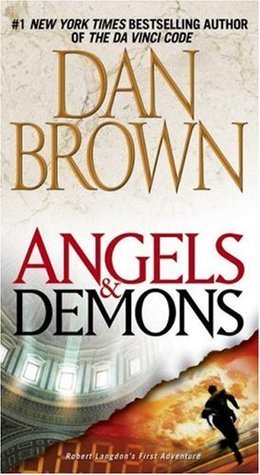 Angels & Demons
Angels & Demons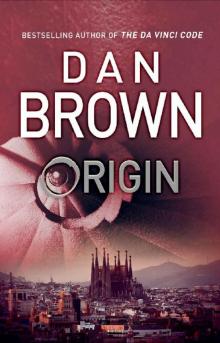 Origin
Origin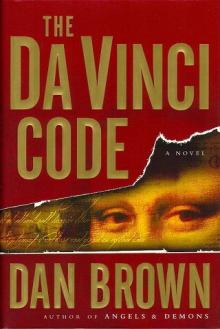 The Da Vinci Code
The Da Vinci Code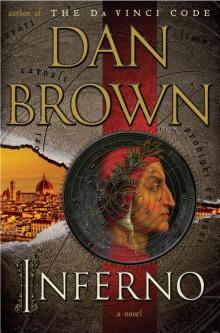 Inferno
Inferno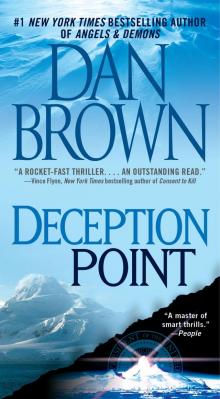 Deception Point
Deception Point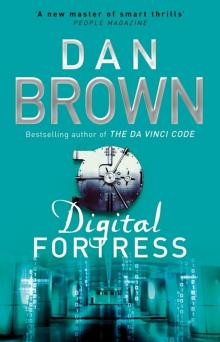 Digital Fortress
Digital Fortress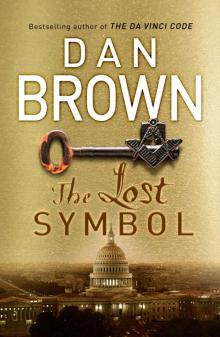 The Lost Symbol
The Lost Symbol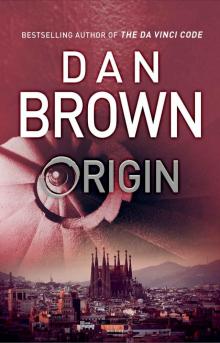 Origin: (Robert Langdon Book 5)
Origin: (Robert Langdon Book 5)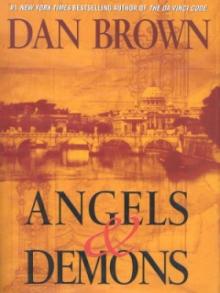 Angles & Demons
Angles & Demons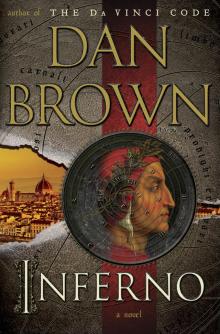 Inferno: A Novel
Inferno: A Novel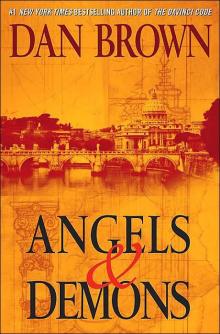 Angels & Demons rl-1
Angels & Demons rl-1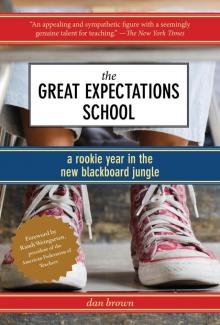 The Great Expectations School
The Great Expectations School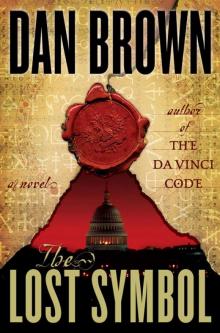 The Lost Symbol rl-3
The Lost Symbol rl-3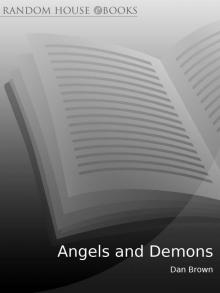 Angels and Demons
Angels and Demons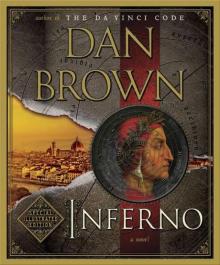 Inferno: Special Illustrated Edition: Featuring Robert Langdon
Inferno: Special Illustrated Edition: Featuring Robert Langdon